

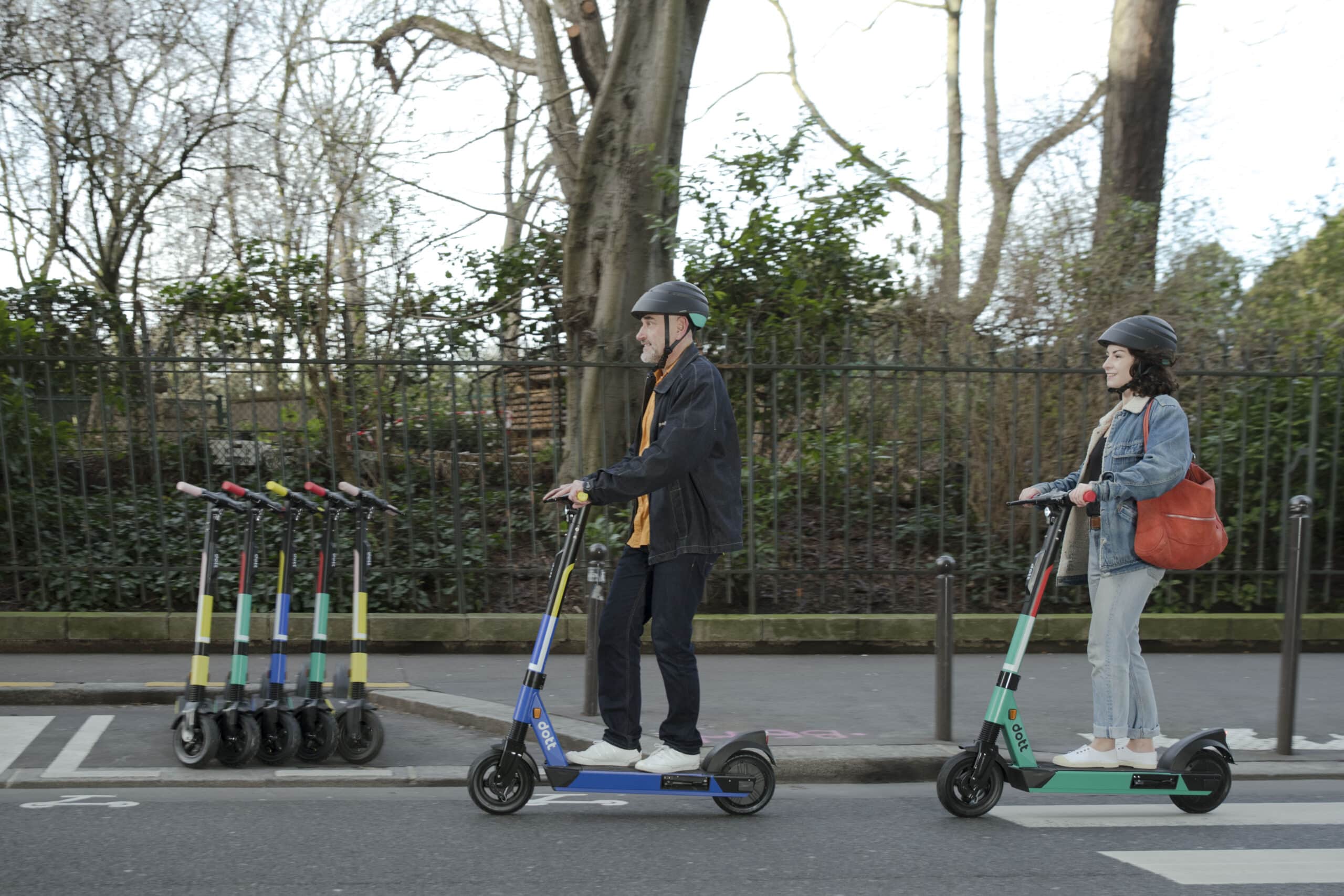
4 years ago
Here at Dott, our journey doesn’t stop when you arrive at your destination. Our commitment to people and the planet means that we care about where our vehicles are at all times, not only when they’re on the go.
That’s why we’re making sure that all our e-scooter trips end in a designated bay and are part of a fully integrated e-scooter network in cities around Europe. In fact, we’ve already successfully worked with city municipalities and infrastructure experts in Paris to make smart parking a reality.
Now, we’ve got our sights set on London.
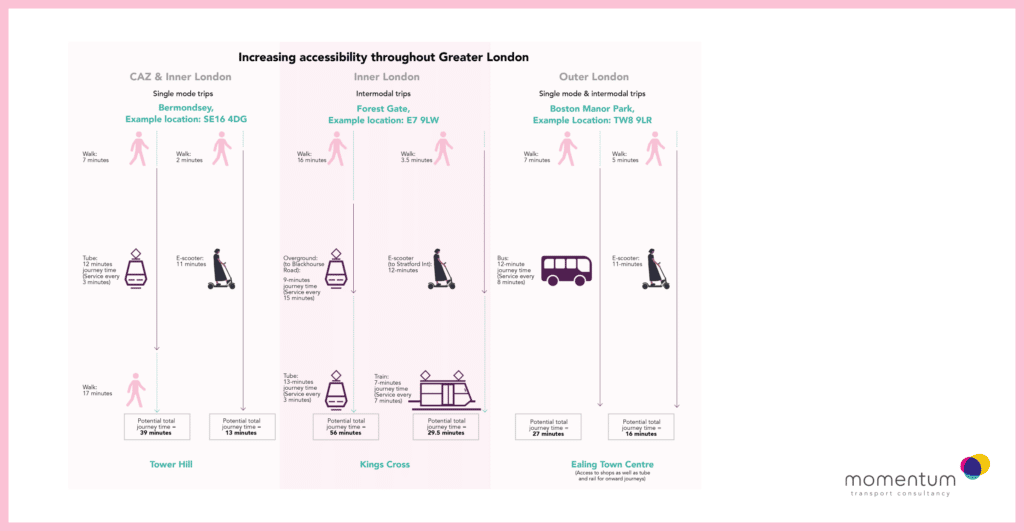
After launching as a trusted e-scooter operator in Paris, we decided to commission an e-scooter rider study with 6-T to better understand our riders’ needs and how we could improve the service. We quickly found out that people were confused about where to put e-scooters after a ride, associated parked e-scooters with clutter, and weren’t always able to find available e-scooters nearby.
We knew it was time for a change.
We took our data and insights to the Paris council where we discussed smart parking technology as the solution. After the first pilot phases in different districts, the Paris council began implementing parking bays city-wide – which today, total 2,500 with an average distance of 102 meters between one another (roughly one minute walking distance). In the meantime, we’ve continued testing our in-house smart parking technology, perfecting its efficiency and interoperability. Because of the infrastructural and technological advances we’ve achieved in Paris, 97% of all Dott trips there have ended in an assigned parking area. Not to mention, e-scooter vandalism fell too.
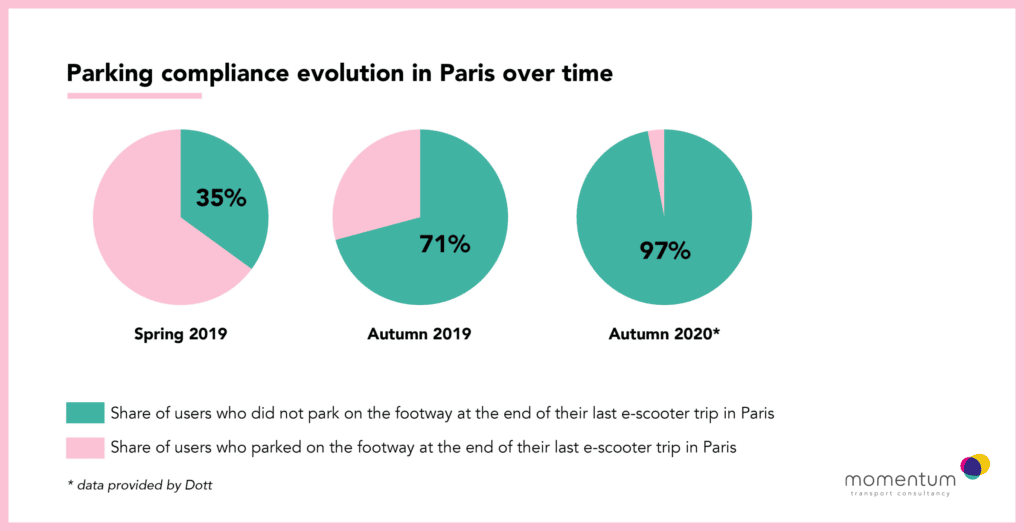
Now, riders can quickly and easily hop on e-scooters at known parking locations, pedestrians don’t have to worry about e-scooters blocking roads, and micromobility as a whole is gaining momentum towards having defined regulations about parking.
As a key player in that mission, we believe that the success we’ve seen in Paris can be replicated in other cities –which brings us to London.
Micromobility and sustainable travel are core parts of London’s travel plans for the future. Our smart parking approach is a natural fit for London as well, as it focuses on connectivity, reducing carbon emissions, and lowering car usage.
More than that, we’re confident that we can assist London with its greater micromobility standards through consistent and transparent smart parking for all the London boroughs. Plus, we want to introduce it in a way that benefits both people and the planet, and enacts meaningful change across the whole spectrum of urban mobility.
Next, we commissioned a second research piece by Momentum Transport Consultancy to find out how we could take our learnings from Paris and apply them to London in the unique Dott way: by collaborating with everyone from city officials and ambassadors to on-the-ground organizations and existing public transport services.
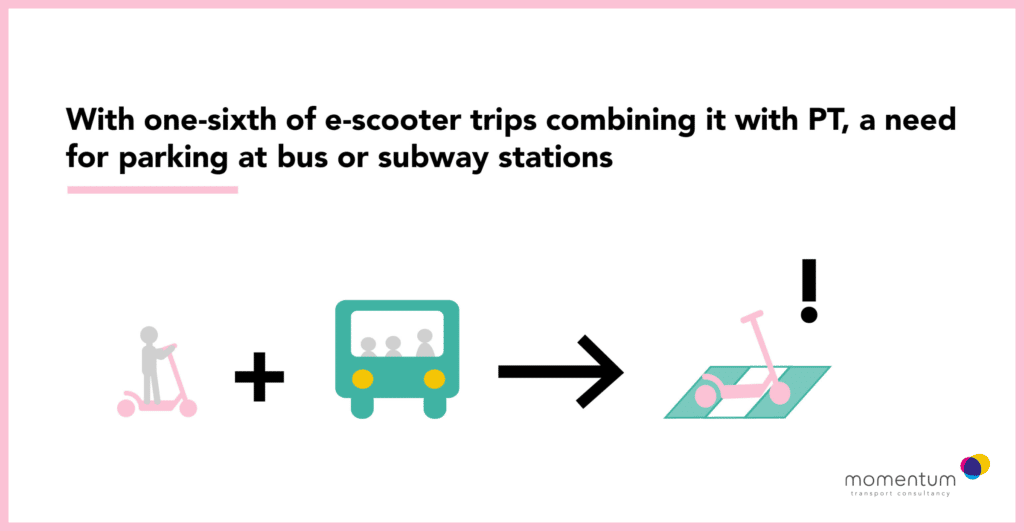
London, like Paris, is big – it has a dense population and limited physical space. What smart parking locations can provide is assigned points to pick up and drop off e-scooters, which eliminates free-floating hardware and unnecessary objects in the streets. It additionally localizes e-scooter and micromobility services by enabling people to identify their closest parking zone and arrive there within minutes. This kind of accessibility empowers people to use greener travel options on a regular basis.
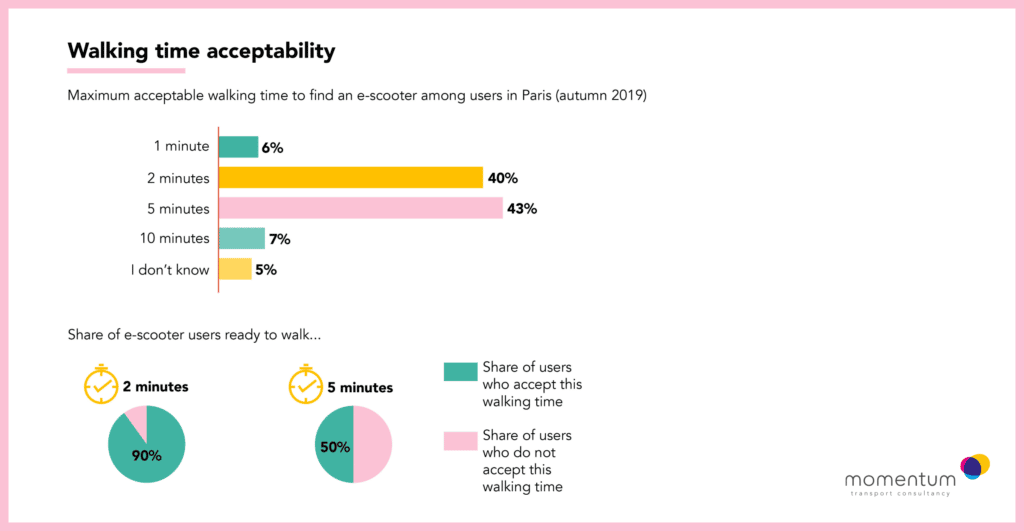
True to our vision, smart parking frees our cities with clean rides for everyone.
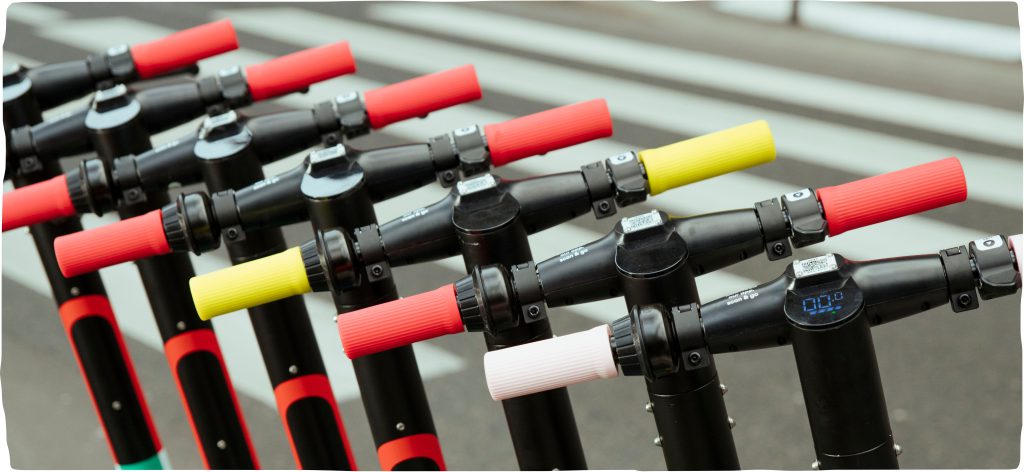
From day one, we’ve wanted to tackle free floating e-scooters. For us, sustainable travel isn’t just about moving through city streets, it’s about responsibly storing vehicles too.
E-bikes and e-scooters left on pathways can be tripping hazards and can disrupt the flow of traffic. By having a standardized parking system, riders have a more efficient e-scooter experience, other city stakeholders are respected, and the streets are kept clean.
Sustainable travel isn’t just about moving through city streets, it’s about responsibly storing vehicles too.
From day one, we’ve wanted to tackle free floating e-scooters. For us, sustainable travel isn’t just about moving through city streets, it’s about responsibly storing vehicles too.
E-bikes and e-scooters left on pathways can be tripping hazards and can disrupt the flow of traffic. By having a standardized parking system, riders have a more efficient e-scooter experience, other city stakeholders are respected, and the streets are kept clean.